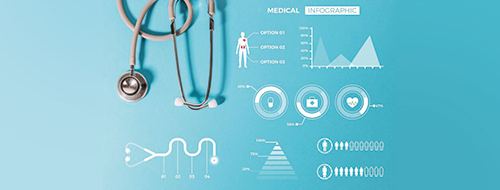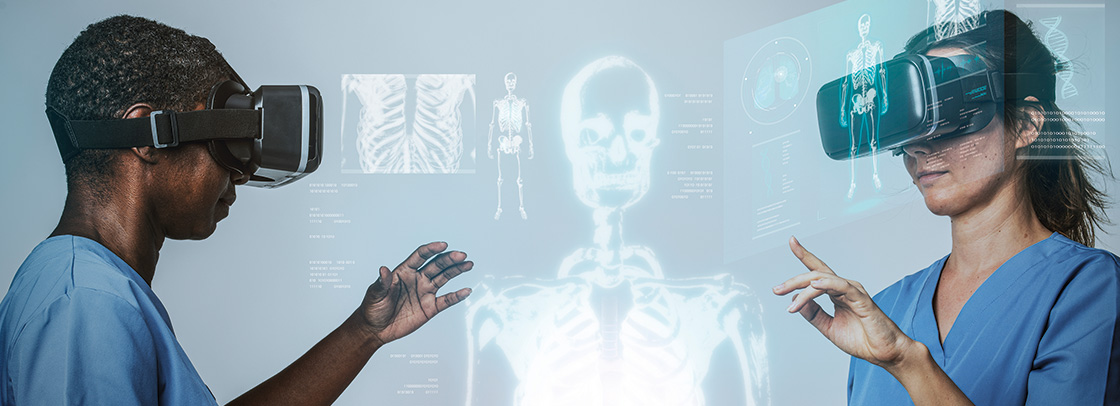The process of gleaning insights from data and analyzing it has statistically enhanced the power of decision-making. This contributes to optimizing the process of serving people better in the healthcare industry.
In the pharmaceutical sector, data science is utilized to improve the drug discovery process by analyzing enormous volumes of medical data. It also fosters the development of novel pharmaceuticals, resulting in successful clinical trials and drug manufacturing processes.
Healthcare is one of the most important sectors in which data analytics has a profound impact. It can reduce treatment costs and predict the future of epidemics to avoid spreading fatal diseases.
This article will discuss how big data promotes healthcare services in the face of new obstacles in the modern era. Through the help of IT, how drug development challenges can be improvised which has the potential to improve the average human lifespan across the world.

Big Data In Healthcare
It is a term used for collecting information by modern digital methods that help accumulate patient records. Keeping track of this information makes hospital operations much easier and more manageable compared to using older forms of technology. As a result, the systematic collection of data through a wide variety is better equipped than ever to face the difficulties of emerging diseases.

Introducing Healthcare IT
Healthcare IT refers to using technology to manage and analyze medical information. This usually involves Electronic health records (EHRs) that produce massive amounts of data that fall under the umbrella term “big data” in the healthcare industry.
Electronic health records contain large amounts of patient data in a digital format. It assists in maintaining patient records to access them randomly which makes the information available promptly and securely. Information technology also allows pharma companies to help provide better treatment for patients while also cutting expenses through advancing medical sciences.
Digitizing Through New Technologies
Medical imaging, genome sequencing, and other medical equipment are examples of technologies that aid in recording digital and technical information. These can be used to generate big data in healthcare. These technologies allow the collection of large amounts of data that can be analyzed to reveal patterns and insights. It also helps in clinical decision-making, supports population health management, and advances medical research. For example, medical imaging can identify early signs of disease, while genome sequencing can identify genetic risk factors for certain conditions.
Also, Clinical decision-making and population health management are critically used for accessing big data analytics, which may be used by pharma companies to spot patterns and trends to make novel medicines for specific diseases.
With the help of collected data, high-risk individuals can be identified, disease outbreaks can be predicted, and therapy efficacy can be tracked. However, when dealing with massive amounts of personally identifiable health information, privacy, and security turn out to be the first concern.
Additionally, data from medical equipment such as heart monitors and glucose meters can provide insights into a patient’s health over time. As a result, big data has the potential to revolutionize the way we deliver and improve patient care in the pharma sector as well. However, it also poses privacy, security, and data management challenges along with it.

Pros and Cons of Healthcare IT
Delivery of medical treatment with IT in the healthcare sector has benefited and struggled in several ways. Some benefits are:
- Efficiency and productivity are increased by automating mundane procedures, and patient care is enhanced by having instantaneous access to the most recent medical records.
- Improved coordination and cooperation in healthcare.
- Lower expenses have led to more efficient data management and fewer mistakes.
- Big data analysis is done for better population health management.
However, there are also obstacles to overcome in healthcare IT implementation, such as:
- Profound outlays for healthcare IT infrastructure, both upfront and ongoing.
- Combating challenges that arise from combining several computer networks and data stores.
- The requirement for healthcare providers to be trained in the use of these technologies.
- The need to maintain patient confidentiality while handling sensitive medical information.
Despite these obstacles, healthcare IT is gaining ground as the sector shifts toward a data-driven, patient-centered treatment model. Therefore, pharma companies are now having more tools to offer excellent treatment at a reasonable cost.
The Success of Healthcare IT
Applying computer programs to medical care has led to several positive outcomes by implementing IT in healthcare.
Electronic health records (EHRs) and other healthcare software technologies facilitate the safe, centralized storage and distribution of patient information, leading to enhanced quality of care.
This paves the way for better patient outcomes by giving pharma companies accurate, up-to-date information at the point of service.
Healthcare IT software allows providers to devote more time to direct patient care because of the automation of administrative activities. The requirement for patients to physically visit a healthcare facility has been reduced as a result of it. Thus. it is accomplished with telemedicine technology that permits remote consultations and monitoring.
Population health management can be enhanced by employing big data analytics and other software tools to examine massive datasets in the healthcare industry. It can be used to reveal useful patterns and trends to guide decisions on how to best care for a certain population.
Cost saving makes the most of these tools. Pharmaceutical IT has the potential to enhance productivity and save expenses by automating mundane processes, improving data management, and minimizing human error.

Conclusion
The pharmaceutical industry relies heavily on IT to maximize business outcomes. Thus, Unimarck Pharma understands the value of data in today’s world. In our 38 years of experience, technology has served us in streamlining our operational process and boosting productivity. It has allowed us to produce high-quality medicines that have provided better care, lower costs, and more innovation to speed up the drug development process.



